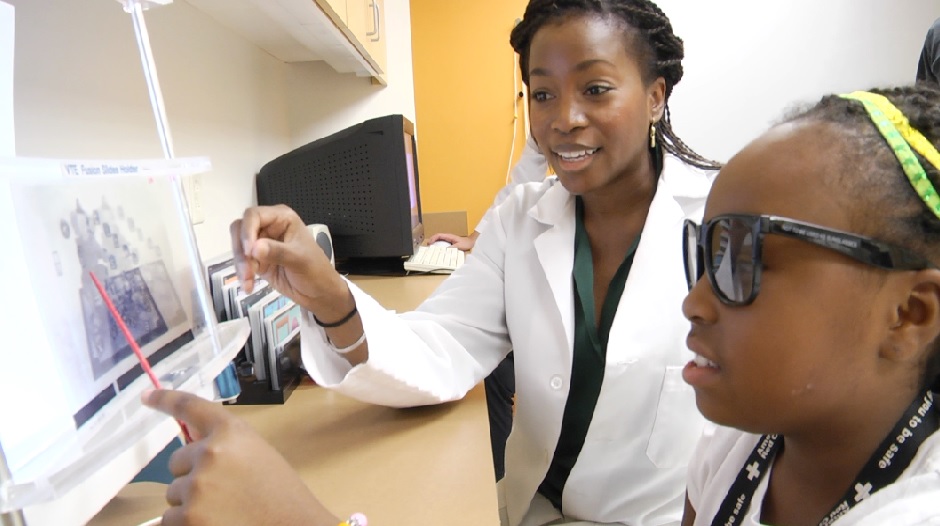Offering Hope at TEI's Brain Injury Clinic
The Brain Injury Clinic at The Eye Institute of Salus University uses vision therapy to improve the visual function in patients with acquired brain injuries.
This specialty works to provide comprehensive care for patients with vision disorders including amblyopia (lazy eye), strabismus (eyeturn), accommodative (focusing), eye teaming, eye tracking, and learning-related visual issues.
 This service was created due to the increased number of patients with brain injury related vision problems, and receives many of its referrals from the Children’s Hospital of Philadelphia and Moss Rehab. “We see many adult patients with motor-vehicle related injuries, as well as children with concussions from playing sports,” said Dr. Ruth Shoge, Assistant Professor and Director of the Pediatric & Binocular Vision Services at The Eye Institute.
This service was created due to the increased number of patients with brain injury related vision problems, and receives many of its referrals from the Children’s Hospital of Philadelphia and Moss Rehab. “We see many adult patients with motor-vehicle related injuries, as well as children with concussions from playing sports,” said Dr. Ruth Shoge, Assistant Professor and Director of the Pediatric & Binocular Vision Services at The Eye Institute.
Components of the visual system are located in all lobes of the brain; consequently, trauma to any part of the brain may affect visual function. Rehabilitation can often relieve symptoms including double vision, headaches, blurred vision, sensitivity to light, nausea, and tracking issues, to name a few. Vision therapy utilizes office-based techniques along with the use of prisms, tinted lenses, and filters in order to rehabilitate eye posture and coordination.
Through rehabilitation, visual function can improve and enhance the patient’s quality of life. “We are able to empower our patients,” said Dr. Shoge. “We are able to evaluate and treat their vision-related issues in order for our patients to get back to work and school, back to life, and back to feeling better!”